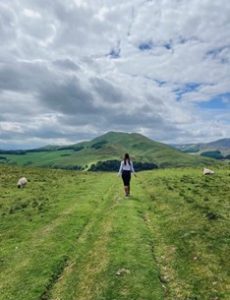GUEST BLOG: Sustainability Scholarship by Ellington Chukwu

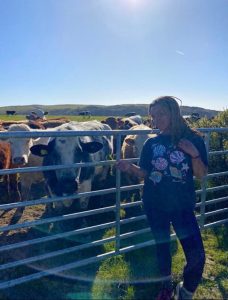
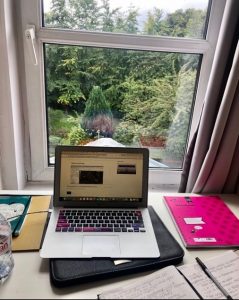
Making the decision to move to Edinburgh and undertake a Masters Degree in a foreign country in the 2020-2021 year in the midst of a global pandemic was not one I took lightly. The subsequent lockdowns caused interruptions to the year that were unforeseen, and still, choosing to study for a Food Security MSc at the University of Edinburgh has been worthwhile, exciting, and rewarding.
During this year of chaos and disorder, when borders were locked, restaurants were closed, and pubs were shut down, it has been both a privilege and comfort to be able to study and learn from Edinburgh faculty. The saying “the world is your classroom” has never been more real than this year when anywhere with a stable WiFi connection could instantly be transformed into a lecture hall complete with your professor and peers.
As a result of this one-of-a-kind, transient year, I have been able to synthesize the information from my lectures and course readings with hands-on experiences, such as working on farms, living with family in Togo, and touring around the UK. Being able to learn from these various locations gave me a distinctive perspective on food security at the ground level that would never have been possible in a traditional, sedentary school year. These experiences and unique lenses complimented my coursework and allowed me to see what was discussed in class in real time.
As a recipient of one of the University’s five Sustainability Scholarships, my motivation for studying at the University was propelled by my passion for environmental regeneration and, specifically, biodiversity and justice in the food system.

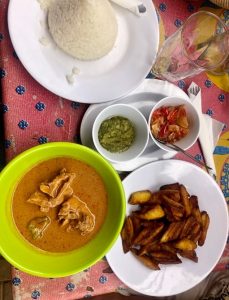

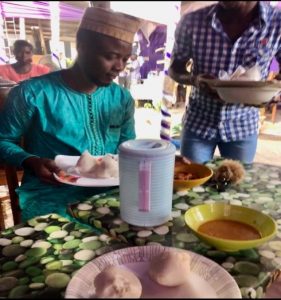
I was able to take multiple courses at the University that broadened my knowledge on these subjects including: ‘Food Supply Chain & Food Safety’ where highlights included learning the intricacies of the farmed salmon industry and writing a research paper analyzing the supply chain of US pork; ‘Food Policy’ where we had multiple guest lecturers who are influential in crafting legislation at both the regional and international scale; ‘Sustainability of Food Production’ which spanned from the chemistry of the phosphorus and nitrogen cycles to the role of genetics in industrial livestock production; ‘Interrelationships in Food Systems’ where we studied the complexities of supply chains and learned how to conduct life cycle analysis; ‘Frameworks to Assess Food Security’ in which we became familiar with how to analyze vulnerability on the national scale; ‘Professional and Research Skills in Practice’ where we have learned how to interpret data through GIS and R; and ‘Nature-based Solutions’ in which we evaluated different rewilding techniques based on their potential to sequester carbon and reverse global climate change.
Ultimately, these courses have helped foster a diverse and well-rounded knowledge of food security by exposing me to multiple facets of the food system, with ample time for research, data collection and analysis.
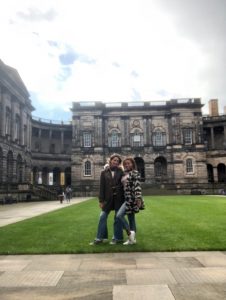 Throughout this year, I have also had opportunities to collaborate with my coursemates, where we have been able to debate contentious topics from class and help each other build a more thorough and nuanced understanding of the intricacies surrounding food, the environment, nutrition, social welfare, and economic empowerment. It has been particularly useful getting to hear their perspectives, as well over half of the program are students from outside of Britain, and it has enriched the course material to hear how the topics we are learning about and analyzing relate to their home countries and experiences.
Throughout this year, I have also had opportunities to collaborate with my coursemates, where we have been able to debate contentious topics from class and help each other build a more thorough and nuanced understanding of the intricacies surrounding food, the environment, nutrition, social welfare, and economic empowerment. It has been particularly useful getting to hear their perspectives, as well over half of the program are students from outside of Britain, and it has enriched the course material to hear how the topics we are learning about and analyzing relate to their home countries and experiences.
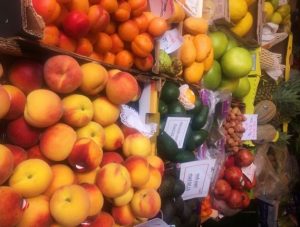
The University has provided us with multiple opportunities to extend our learning outside of our usual coursework with the ability to partake in the ‘2020 International Conference on Global Food Security’ where a wide range of food systems academics, researchers, and professionals from around the world convened to debate and discuss the world’s most pressing topics related to food security, as well as membership to a Food History lecture series in which additional presentations were given exploring the role that particular food, crop, or technique had made on a locality.
My coursework at the University has given me a better understanding of the complexities and nuances of balance in managing short term versus long term sustainability goals, an increased ability to analyze and interpret hard data, and the tools and resources with which to undertake my own research projects— all of which have ultimately led to my dissertation, where I am studying the role that indigenous crops and knowledge have in both preventing and reversing the nutrition transition in South-Eastern Nigeria.
Overall, I know that my education at the University of Edinburgh has done an excellent job of preparing me for a lifetime contributing to solving some of the most pressing social, environmental, and economic issues threatening global food security, and I am excited to see what the future holds!

